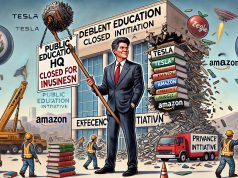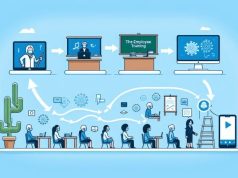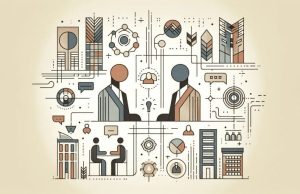In the face of a rapidly evolving job market, the very fabric of the traditional employment landscape is undergoing a seismic shift. The surge of technological advancements, automation, and global economic fluctuations have made certain job roles redundant while simultaneously giving birth to new ones. This metamorphosis in the workforce demands an equally transformative approach to professional development: lifelong learning through upskilling and reskilling. As we sail through this upskilling and reskilling revolution, the need to continuously adapt and enhance one’s skillset has become an essential component of sustainable employment and organizational competitiveness.
At the heart of this transformation are the success stories of individuals and enterprises that have not just survived, but thrived by making continuous education a cornerstone of their growth strategy. Consider the case of Jane Doe, a mid-level manager in the manufacturing sector. Faced with the advent of automation, Jane chose to upskill by learning about advanced manufacturing technologies and leadership in a digital age. Through a combination of online courses and on-the-job training, she not only safeguarded her position but also positioned herself for advancement. On the organizational front, companies like XYZ Corp have set an example by investing in comprehensive learning management systems that provide personalized learning paths for each employee, leading to increased innovation and productivity.
However, the journey to becoming a ‘learning individual’ or a ‘learning organization’ is replete with psychological and logistical hurdles. Many workers grapple with the fear of inadequacy and the discomfort associated with stepping out of their expertise zones. Logistically, finding the time and resources for education can be daunting, especially for those already struggling to balance work and personal commitments.
Furthermore, the role of policymakers and educational institutions is pivotal in shaping an ecosystem that encourages and facilitates this paradigm shift. There is a growing need to reimagine education and training systems that are flexible, accessible, and aligned with the demands of the modern workforce. Initiatives like government-funded training programs or tax incentives for companies providing employee learning opportunities can play a significant role in bridging the skills gap.
Yet, we must also confront the uncomfortable truth that socioeconomic disparities create unequal access to upskilling opportunities. Those from underprivileged backgrounds often have fewer resources to invest in continuous learning, thereby perpetuating the cycle of inequality. As a society, we must address these disparities head-on by designing targeted interventions that provide equitable opportunities for all.
This ongoing revolution in the workplace calls for a redefinition of ‘job security.’ Gone are the days when tenure and loyalty to a single employer were the hallmarks of a stable career. Instead, ‘job security’ today is synonymous with one’s ability to learn, adapt, and apply new skills. It underscores a collective responsibility to cultivate an environment that not just values, but actively supports perpetual skills development.
As we chart the course for future workplaces, we must collectively advocate for policies, cultures, and mindsets that prioritize lifelong learning. By doing so, we can harness the full potential of our workforce, fuel innovation, and ensure that individuals and organizations alike not only withstand the winds of change but emerge more robust and resilient than ever before.




























